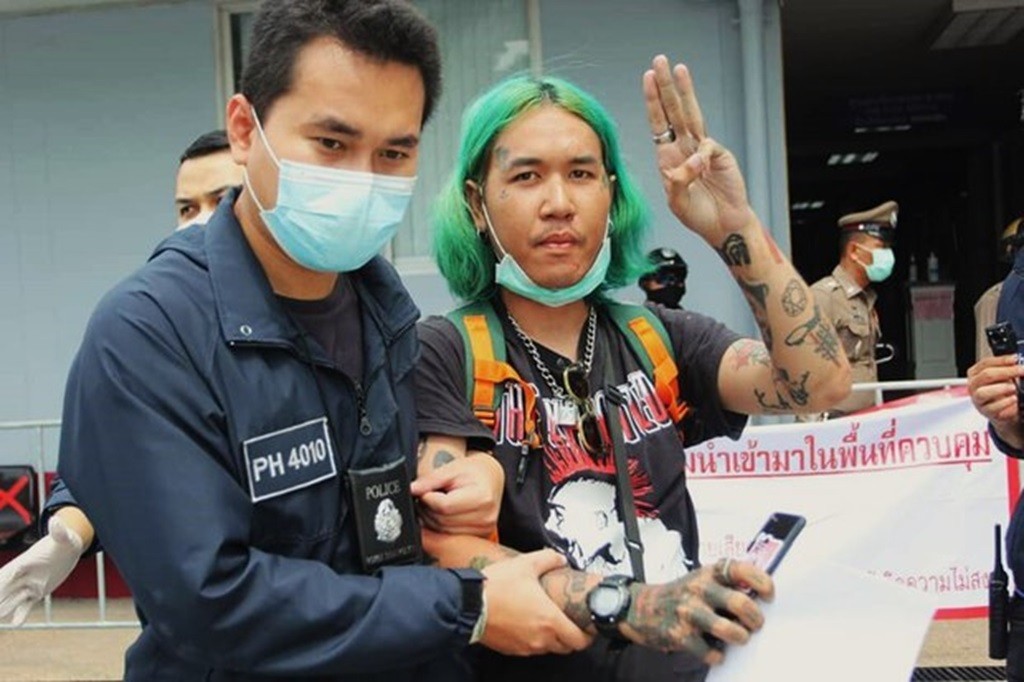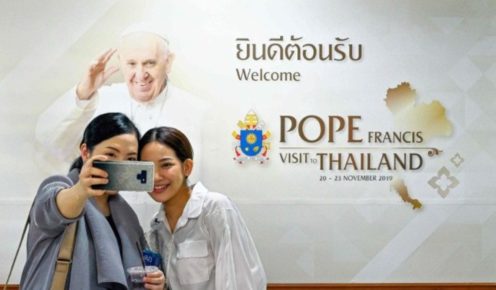A man in northern Thailand’s Chiang Rai province is facing 50 years in prison for royal defamation after the Court of Appeal declared him guilty on additional charges, Thai Lawyers for Human Rights (TLHR) stated on Thursday.
The punishment against Mongkol “Busbas” Thirakot is thought to be the longest on record for violating Section 112 of the Criminal Code, the lese-majeste legislation, according to a post on X by the attorneys’ group.
The previous record was established in the case of Anchan Preelert, a former senior Revenue Department official convicted in January 2021. She was originally sentenced to 87 years in prison for violating Section 112 of the Computer Crime Act by defaming the queen in posts on several social media accounts. She received a 43-year sentence after confessing.
Conviction under Section 112 results in a minimum of three years in jail and a maximum of 15 years for each charge. Mr Mongkol, a 30-year-old online apparel merchant and campaigner, is in the midst of filing a bail request with the Supreme Court, according to his lawyers.

The Chiang Rai Court of Appeal found the defendant guilty of 11 more charges of lèse-majeste, in addition to the 14 convictions in the Court of First Instance in January 2023, for a total of 27 Facebook posts.
The appeals court sentenced Mr. Mongkol to three years on each count, for a total of 33 years. The judges lowered his sentence by one-third to 22 years since he offered helpful information, they claimed.
Last year, the Court of First Instance imposed a 42-year sentence, but reduced it to 28. The entire prison term is now 50 years. Mr Mongkol was detained in April 2021 after embarking on a hunger strike in Chiang Rai to demand the right to bail for political prisoners in similar circumstances.
According to TLHR data through December 31, last year, 1,938 persons have been prosecuted for political engagement and expression since the start of the Free Youth protests in July 2020.
At least 262 people are facing lese-majeste charges under Section 112, while 138 are facing sedition charges under Section 116. In December, the courts heard nine cases under Section 116, all of which were dismissed.
In Thailand, Article 112 lese-majeste rules ban any form of abuse or defamation directed against the royal family. The offence carries harsh penalties, including imprisonment.
Individuals have faced legal action for apparent infractions of this statute, such as internet posts or public utterances. The lese-majeste laws are an important part of the country’s legal and political landscape, having ramifications for freedom of speech and expression.
The implementation of these rules has attracted international attention and sparked debate about human rights and censorship in Thailand.
China’s Thrust for Coffee May Benefit Chiang Rai’s Coffee Growers
China’s Thrust for Coffee May Benefit Chiang Rai’s Coffee Growers










